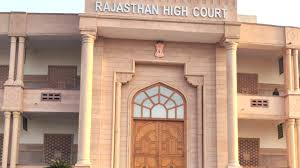Jaipur: In a significant judgment, the Rajasthan High Court has ruled that an individual cannot be denied permission to travel abroad for Haj, Umrah, or Ziyarat merely due to the pendency of a criminal case involving a domestic dispute. The court declared such denial a violation of the fundamental right to personal liberty under Article 21 of the Indian Constitution.
The case involved Mohammed Muslim Khan, a 61-year-old resident of Vigyan Nagar in Kota, who had challenged the Regional Passport Office’s rejection of his passport re-issuance application. Khan, facing charges under Sections 498-A (cruelty by husband) and 406 (criminal breach of trust) of the Indian Penal Code in a Kota court, had applied to travel to Saudi Arabia to perform Haj.
Despite his application being disposed of by the trial court on April 16, 2025, with directions that the passport authority could take an appropriate decision, the Regional Passport Office refused to grant him permission through a letter dated May 7, 2025. The trial court then rejected Khan’s second application on technical grounds.
Khan’s legal counsel argued before the High Court that no application had been considered on merit, and the passport authority acted without a valid court denial.
The Ministry of External Affairs and Regional Passport Office contended that under a 1993 notification, anyone with pending criminal cases requires court permission to travel abroad. However, Justice Anoop Kumar Dhand stated that mere pendency of charges under Sections 498-A and 406 cannot deprive a citizen of their right to religious travel.
Quoting the Supreme Court’s judgment in Maneka Gandhi vs. Union of India (1978), the High Court emphasized the importance of balancing a person’s right to travel with the prosecution’s need to proceed with the trial. The court highlighted that clear judicial permission allows such travel without jeopardizing the case.
The High Court quashed the passport office’s rejection and granted Khan two months’ permission to travel, subject to conditions: he must surrender his passport to the trial court after returning, restrict his visit to only Makkah and Madinah, and appear in court post-return.
Before concluding, the court directed all subordinate courts in Rajasthan to issue clear and specific orders when an accused seeks permission for foreign travel. It noted that vague or non-specific orders create confusion for the passport authorities, affecting timely decisions.




